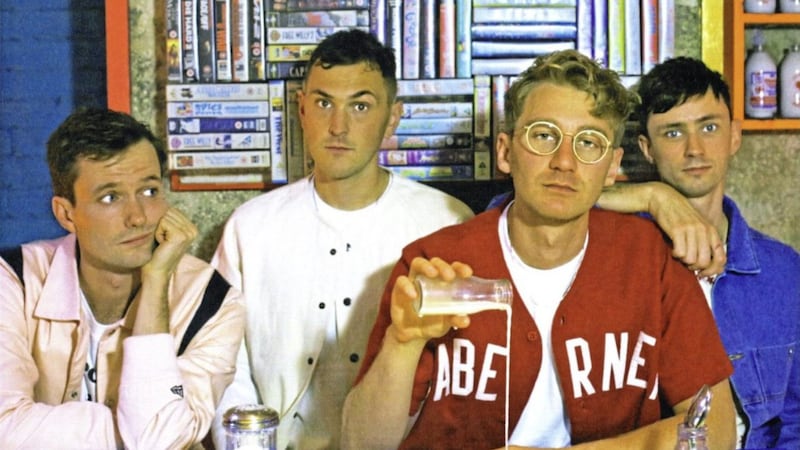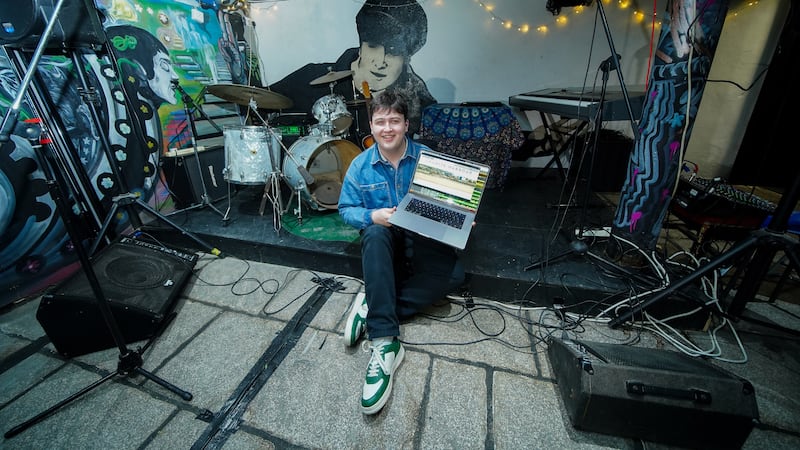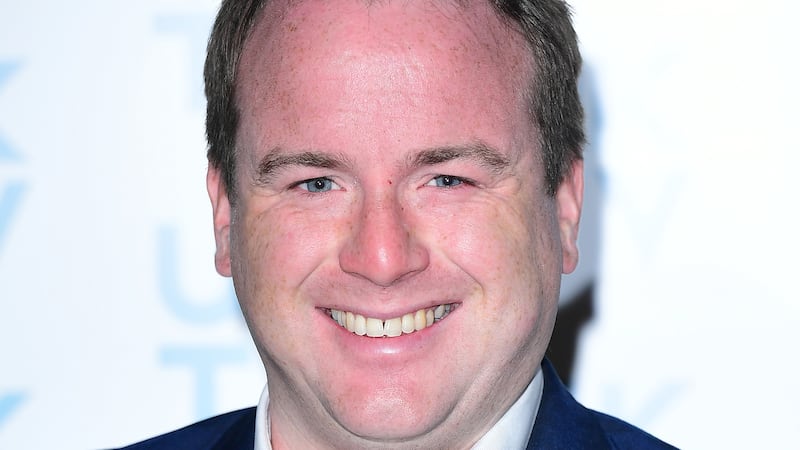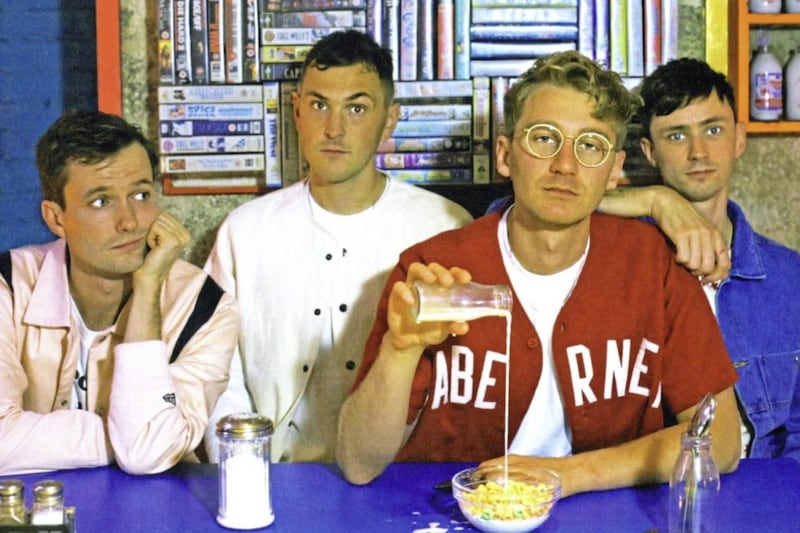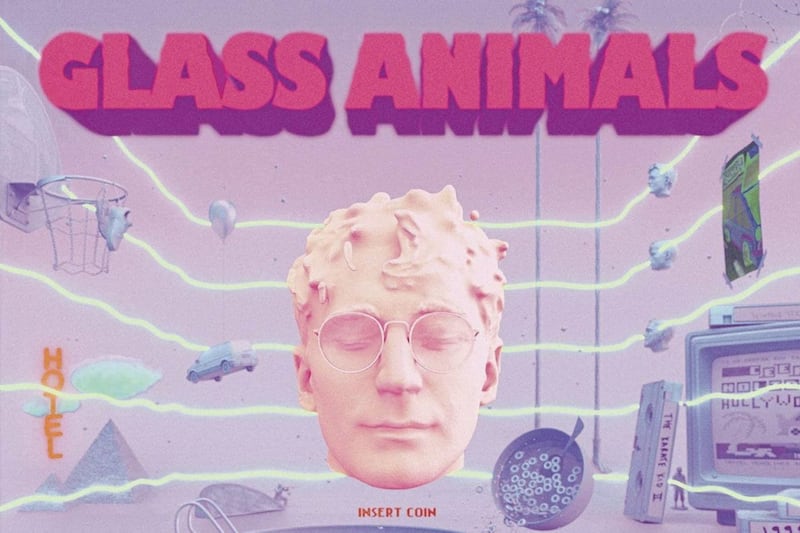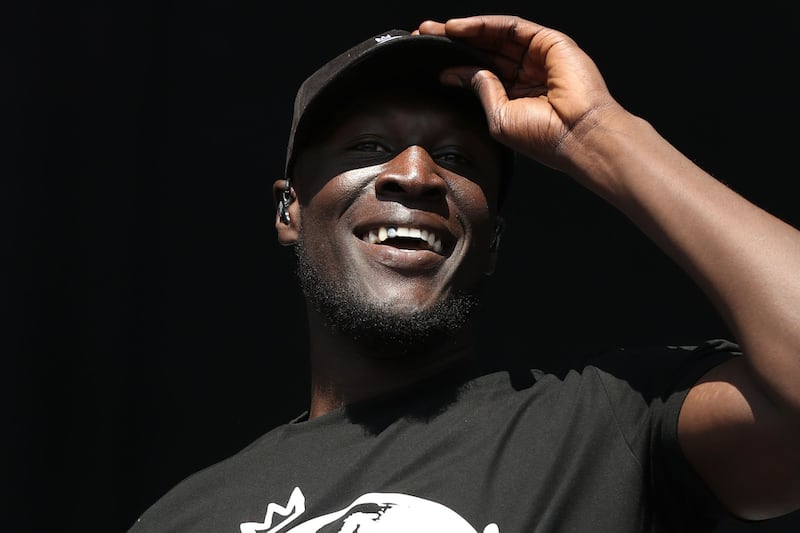TWO years ago Glass Animals drummer Joe Seaward collided with a lorry while cycling in Dublin – his leg was broken and he suffered a complex skull fracture.
But following neurosurgery, he made an astonishing recovery, regaining his speech and rejoining the Oxford psychedelic-pop band for a series of emotionally charged gigs.
Singer Dave Bayley studied neuroscience at university and so had some understanding of the seriousness of his friend’s injuries. He remained at his bedside in the weeks following the crash, and the collective trauma of that time permeates Glass Animals’ third album, Dreamland.
“I was lying to his parents for quite a long time,” Bayley recalls. “I was saying ‘Oh, it’s absolutely fine, he’s going to be totally fine, don’t worry.’ But really inside I was like ‘He’s probably never going to play the drums again’.”
Bayley formed the indie four-piece in Oxford in 2010, with childhood friend Seaward, Ed Irwin-Singer and Drew MacFarlane.
And it was these memories, as well as those from his early years living in the small city of College Station, Texas, that began to emerge as he found himself in stasis, bound to his friend’s hospital bed.
“You’re not doing anything new or having new experiences so what you start to do, with all the adrenaline of waiting for news, you end up going really deep into memory and the past, and reliving old experiences,” he recollects.
No surprise then that Dreamland is more intimate than its Mercury Prize-nominated predecessor, 2016’s How To Be A Human Being. It tackles the cost of toxic masculinity and documents the nervous excitement of a burgeoning relationship.
Despite the personal subject matter, Bayley doesn’t lose his knack for an absurdist lyric such as on Tangerine (“Hands, knees, please/Tangerine, sugar, honey, sweet”).
The question of whether Seaward would ever play again forced the band to face existential questions. Could they continue to play as Glass Animals without him?
“We basically didn’t know whether he was going to survive, or even if he was going to recover enough to talk or walk again. That led to questions about the band continuing at all. The future seemed pretty bleak.”
But Dreamland is an album drenched in optimism and named after Bayley’s propensity to daydream in class as a schoolboy.
Bayley is speaking on Zoom from his home in Hackney, east London, flanked by lush indoor greenery.
Explaining the title, he recalls a favourite teacher in Texas who used to tell him “Dave, get out of dreamland!”
Bayley’s formative years were guided by a diet of chart-ready rap like Dr Dre, Missy Elliott and Busta Rhymes, played on the US hip hop radio he tuned into using a red plastic boom box.
“I used to extend it with a clothes hanger to pick up more stations,” he explains gleefully.
Since 2015 Bayley has worked with rap royalty like Joey Bada$$, Wale and, more recently, Denzel Curry in Tokyo Drifting, which features on Dreamland.
“After Joe had his accident I was always drifting off and going on these weird little … holidays,” he says, searching for the right word. “I did find again when the lockdown started that I was having really crazy dreams.
“I was daydreaming a lot. I saw the parallel between drifting off when I was young and those moments more recently.
“It’s an album about nostalgia and memories starting around that period of my life – that fourth grade period.”
The band’s first performance back with Seaward was in Manchester at a small venue called Gorilla, nestled between railway arches near the city’s centre.
“I felt nervous for him,” he admits. “The whole accident made us feel really lucky to have ever done those little shows – to have done any shows at all.
“We went back and played all the venues we played on our first tour, all over the whole world. We did Gorilla, we did Village Underground in London, the Troubadour in LA.
“Sadly all of these venues are totally a little bit doomed with the virus.
“It was a proper moment. I remember looking at him and just going…”
Bayley exhales forcefully.
“We just smiled at each other. And he was just like ‘What? I got this’. He’s very stubborn and knew in his head that he was going to be better.
“That’s a huge thing when you are recovering from something like that. If you have it in your head that you are going to be OK, I think that dramatically improves your chances of recovery.”
Of course, the band’s best-laid plans were disrupted by the coronavirus. Yet in a peculiar twist of fate, the conditions of lockdown have created the perfect environment for the album’s release.
Lockdown forced them to conjure up new ways to connect with listeners.
They recorded “quarantine covers” of songs by Nirvana and Lana Del Rey, created an open-source website and invited fans to remix their tracks.
“Weirdly, there is this parallel between when the record was written – the head space from that time – and now. All of my friends, what they are eating, talking about, watching on TV, everything is nostalgic. It’s looking back. It’s memories.
“When the lockdown started I was super bummed for two weeks. This is a disaster for so many people – and this record, I didn’t know if we would be able to continue this project.
“For the second time in two years I was in that same position.
“Slowly it dawned on me that actually the record can be released now, it fits the social atmosphere better than I could have ever imagined.”
:: Dreamland is out now via Polydor.
